 "Justin Hughes" (justinhughes54)
"Justin Hughes" (justinhughes54)
04/26/2015 at 15:02 ē Filed to: track day bro
 7
7
 5
5
 "Justin Hughes" (justinhughes54)
"Justin Hughes" (justinhughes54)
04/26/2015 at 15:02 ē Filed to: track day bro |  7 7
|  5 5 |
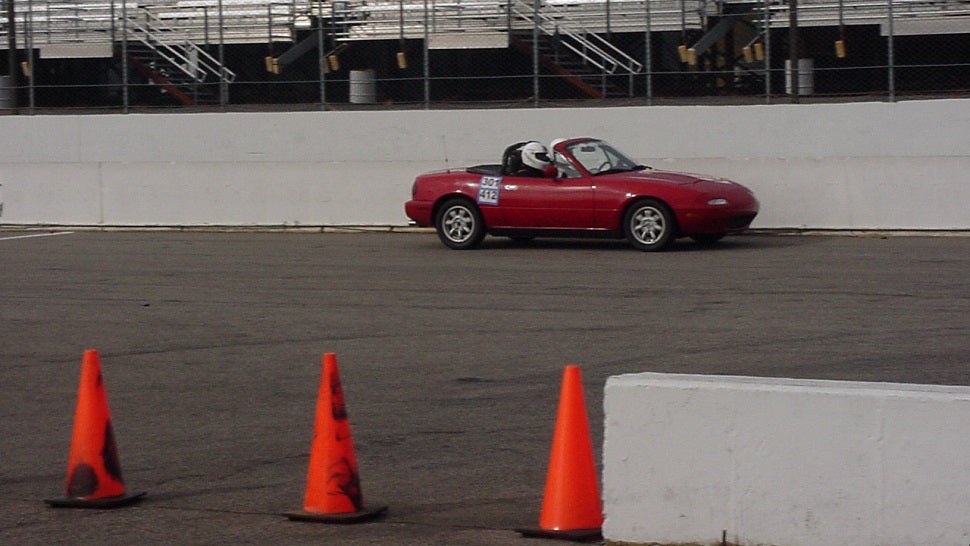
Your brakes are designed for a carís primary purpose Ė street driving. But the track asks a lot more of your brakes than that, and repeated hard stops from high speeds can overwhelm your stock brakes. Hereís how to prevent that from happening on the track.
Brakes are as much as safety item as anything else I mentioned in !!!error: Indecipherable SUB-paragraph formatting!!! . Some tracks let even ďslowĒ cars hit triple digit speeds on the straightaways. At my first event, in a bone stock Saturn SC2, I still managed to top 100mph on the front straight at Lime Rock Park Ė in the rain. Fast straights are always followed by a corner that you need to slow down for, and your brakes have to deliver, each time, every time. This is very different than street driving (or at least how I hope you drive on the street), and aside from high end sports cars, your stock brakes are not designed to hold up to this kind of heavy use.
!!! UNKNOWN CONTENT TYPE !!!
The issue is heat. Technically, your brakes donít stop the car Ė they convert the carís kinetic energy into heat. I canít remember where I read it years ago, and I may be remembering it wrong, but I recall that the heat generated by a BMW 540i stopping from 60mph is enough energy to bring a pot of water from room temperature to a boil. That sounds like a lot of energy, and it is, but any car with a properly functioning brake system can handle this. Thatís what theyíre for.
The problems start when we increase the speed, increase how hard we brake, and decrease the cooling time between brake applications. Track driving does all three of these, causing more and more heat to build up during each track session. Your stock brakes may be fine at the beginning of the day, but once youíre up to speed, your brake pedal may feel much softer, and your pads may not be stopping you as well. They may have even worn out entirely, despite having a lot of life left at the beginning of the event (you did check them, right?)
Fortunately, there are some simple measures you can take to beef up your braking system to hold up to track use and improve performance Ė even off the track.
!!! UNKNOWN HEADER TYPE (MULTI-LINE BREAK?) !!!
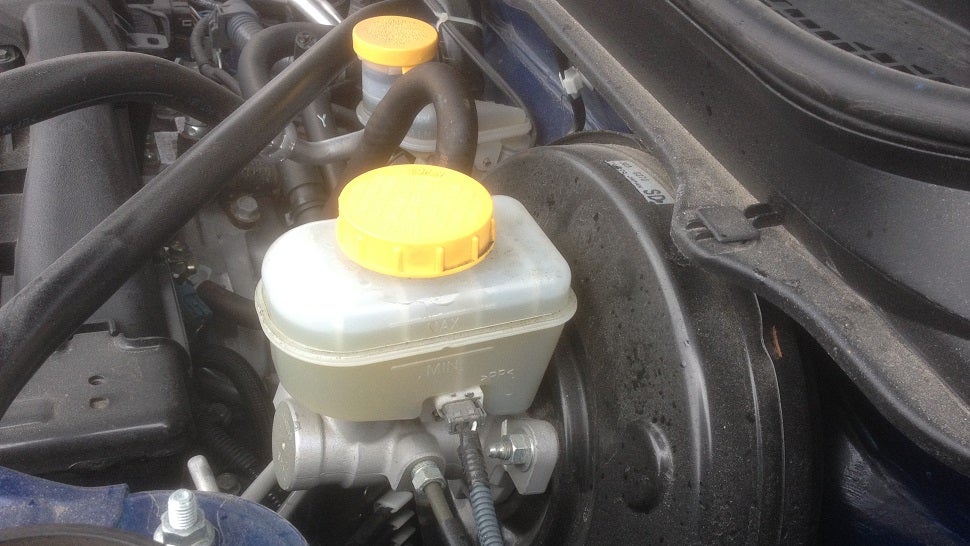
One of the few things you absolutely have to change on any car that is about to be driven on the track is the brake fluid. The average driver probably never does this for the entire life of their car. Weíre not average drivers, so that may not be the case here, but regardless an upgrade is in order before venturing out on the track.
When the brake pedal goes squishy (thatís a technical term), it usually means that moisture has entered the brake fluid. This happens naturally over years as brake fluid ages, or much more quickly if the fluid boils from the heat generated by track driving. Itís cheap insurance to replace your brake fluid with synthetic DOT 4 fluid. It has a higher boiling point than standard brake fluid, which makes it more resistant to boiling on the track. It also has no negative side effects on street driving, and may even make your brake pedal feel firmer and more responsive than stock. You can do this for under $20, so thereís really no reason not to upgrade your fluid before going to the track. Iíve been using ATE Typ 200 (and Super Blue, which is no longer available) for years, and thatís whatís in my BRZ now. There are many other options, but as long as theyíre synthetic DOT 4, they should work just fine.
!!! UNKNOWN HEADER TYPE (MULTI-LINE BREAK?) !!!
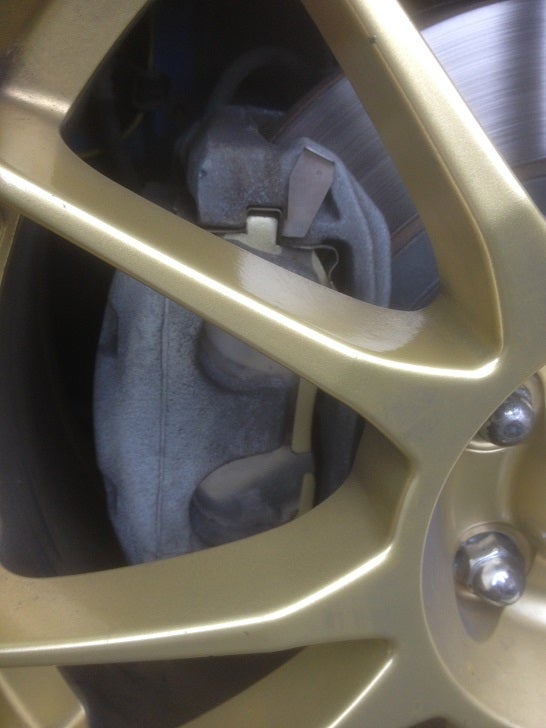
Pads are also vulnerable to overheating, resulting in premature wear and reduced stopping power. I once used an autocross specific pad for a track day. It worked great while it lasted, but when I took my wheels off afterward, piles of brake dust fell out of them. Iíd used them up completely in one day because they literally couldnít take the heat. Iíve also started a track day with lots of life left on my stock pads, got much faster throughout the day, and had to sit out my last session because they were down to the backing plates and no one had any spares to loan or sell me. Needless to say, driving home while towing my tire trailer behind me was... interesting.
There are so many performance brake pad options out there that I recommend browsing the forums for your particular car for suggestions, and asking the pros for what pad they would recommend. At the recommendation of !!!error: Indecipherable SUB-paragraph formatting!!! after explaining my particular situation, Iíve put a set of !!!error: Indecipherable SUB-paragraph formatting!!! pads on all four corners of my BRZ. I can already say that I will be switching back to my stock pads soon after the upcoming Track Night In America event that Iíve been prepping the car for. They squeak a lot, and they leave lots of dust all over my pretty gold wheels. I honestly donít feel much difference in braking power over stock, which are already quite good, so thatís not a complaint at all. The point is that these pads wonít fall apart under the high heat generated by track driving, and thatís the real reason why I got them, not because they happen to match my gold wheels that they dust all over. Only time will tell how long they last, but I should get at least a few events out of them, especially if I switch back to stock pads for regular street driving.
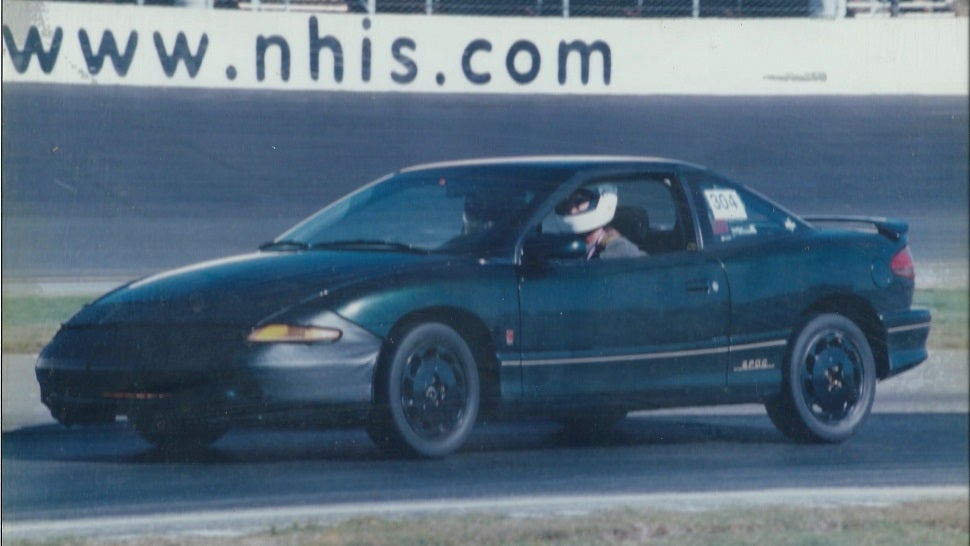
One question Iíve heard a lot is whether you have to upgrade all four corners, or can you get away with upgrading only the front. The vast majority of your braking power comes from the front anyway. I think the answer to that question depends on the car. I only upgraded the front pads on my Saturn because I had rear drums that I couldnít upgrade. It worked fine, mainly because it was a front heavy, front wheel drive car that didnít tax the rear brakes very much. My Miata worked fine with only the front brakes upgraded, but the brakes felt better and more balanced with better pads on all four corners. Miatas are very well balanced cars (which is partly why we love them), and that sort of change in compound alters the front/rear brake bias, which is something to keep in mind. Thatís not have to say you canít do it. You can intentionally run different types of pads in the front and rear specifically to change the bias, if you want. Just be careful not to upset it.
!!! UNKNOWN HEADER TYPE (MULTI-LINE BREAK?) !!!
Fluid and pads are the only two items I consider necessary to get on track. But there are many other items you can change.
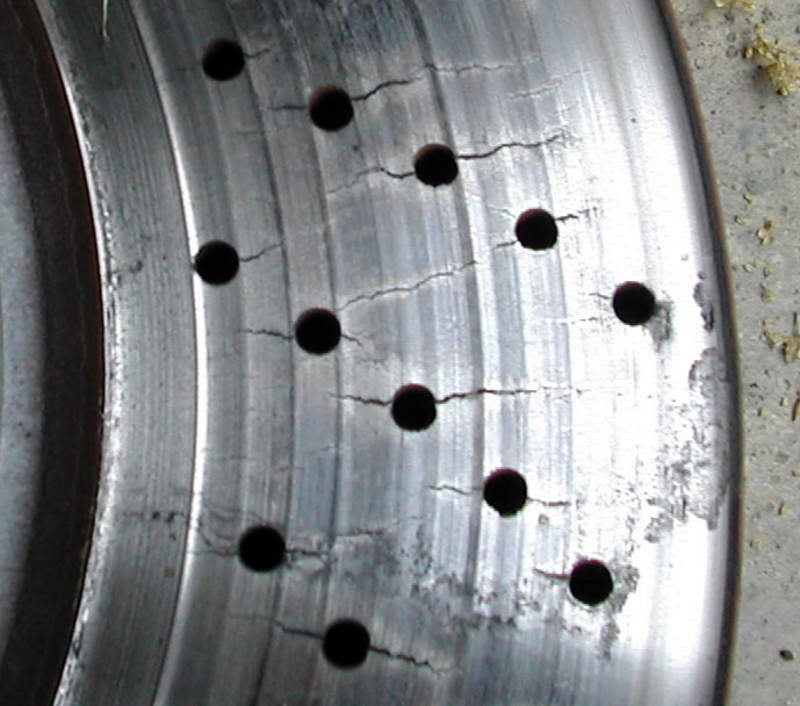
Personally, I donít bother upgrading my rotors. I figure that, like brake pads, rotors are a wear item, and itís cheaper to replace basic stock rotors than cryo treated, slotted, cross drilled rotors. Iíve also noticed no improvement in braking performance with rotors other than stock. Cross drilled rotors also have a tendency to crack, starting from the holes.
Iíve never added stainless steel brake lines to any of my cars. But my third Miata had them installed by a previous owner. I never took that car to the track, but I didnít need to in order to appreciate the firmer brake pedal they provide. Rubber hoses flex and feelÖ well, rubbery. Steel doesnít. Theyíre not necessary for the track, but theyíre a nice improvement. If youíre running an older car with older rubber hoses, switch to stainless lines.
Big brake kits are common for race cars, but you donít need them if youíre not racing. As you gain experience, move into the faster run groups, really start pushing your car hard, you may again start overwhelming your brakes, even if you have made all of the improvements Iíve suggested. That would be the time consider a more significant upgrade.
Next time, Iíll cover the last two parts of the equation Ė handling, and POWAAAAAAAH!!!
(Photo credits: Allison Feldhusen, Pelican Parts, Justin Hughes)
 SWITAWI
> Justin Hughes
SWITAWI
> Justin Hughes
04/27/2015 at 14:46 |
|
When I was running my daily-driver GTI monthly in SCCA Autocross and PCA Time Trials these rotors were probably the best all-around modification I did. Made by the OEM manufacturer from OEM blanks, no cracking, no noise with less-aggressive pads, no warping, and when the groove/slot was worn down the rotors had reached their wear limit. Cannot recommend them enough if you can get them for your car.
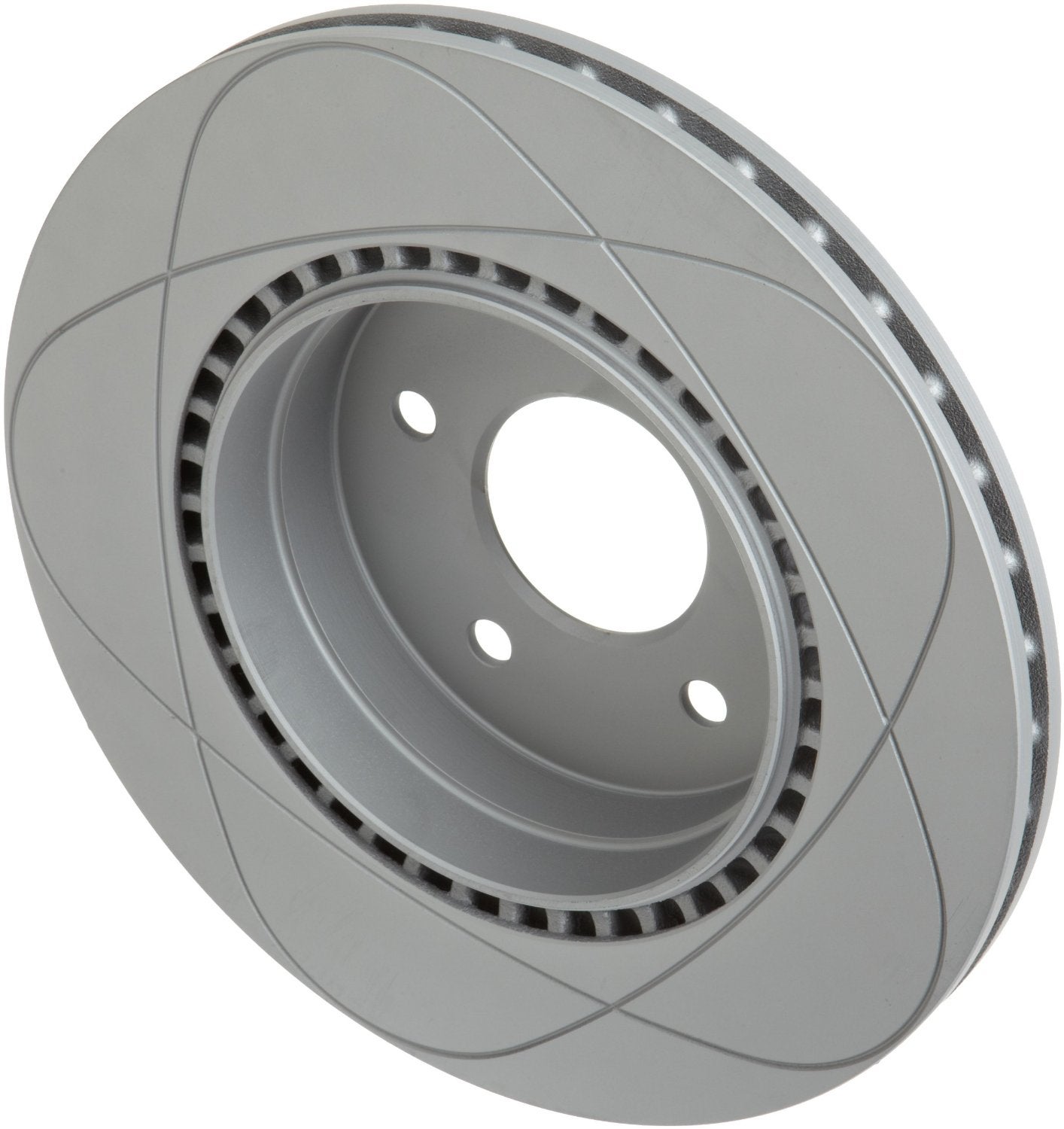
http://www.tirerack.com/brakes/brakes.Ö
 Justin Hughes
> SWITAWI
Justin Hughes
> SWITAWI
04/27/2015 at 15:10 |
|
I've used these myself, on a modified Saturn SL2. It never saw the track, but I autocrossed it a lot, and they worked well. I didn't notice an improvement over stock myself, but that's just me. No complaints whatsoever, though.
 SWITAWI
> Justin Hughes
SWITAWI
> Justin Hughes
04/27/2015 at 15:52 |
|
When I started my track days I was running stock rotors and pads, and the GTIís big single piston caliper would make a visible, discolored hotspot in the middle of the pad material (dead center of the piston behind it) before they were done. My brakes faded quicker over time and good braking was restored with fresh pads and a good line bleeding. After I put these rotors on the front I no longer got the hotspot, ever. As for what I could feel , biggest differences were more consistency in wet braking (when running through standing water) and less-significant fade during 20-30min sessions in high-speed time trials. On the road they were just like having very good-condition stock rotors and I thought that was the beauty of them. Never had to worry because they werenít anything special requiring any more attention than normal.
Eventually I got froggy and sourced some racing pads from a Porsche Club friend that howled every time I got on the brakes at less than 60mph. The bedding-in instructions read something like ďPerform 3-4 medium speed (70-80kph) brakings but do not come to a complete stop. Then perform 2-3 high speed (150-160kph) brakings and come to a complete stop each time. Then return to the pits and allow cooling.Ē That was an adventure on a rural road.
And yeah, those pads ate those Ate rotors. (lol)
 Justin Hughes
> SWITAWI
Justin Hughes
> SWITAWI
04/27/2015 at 16:33 |
|
Great info - thanks for sharing!
Unfortunately these rotors arenít available for my BRZ. I checked because of your recommendation.
 HellPhish89
> Justin Hughes
HellPhish89
> Justin Hughes
04/28/2015 at 03:57 |
|
do not ever buy drilled rotors if you track your car.